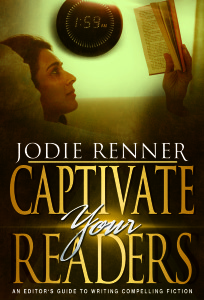by Elizabeth S. Craig, @elizabethscraig

Twitterific writing links are fed into the Writer’s Knowledge Base search engine (developed by writer and software engineer Mike Fleming) which has over 30,000 free articles on writing related topics. It’s the search engine for writers.
Why So Many People Write at Starbucks: http://ow.ly/Kl2NW @theryanlanz
3 Career Reinvention Tips From A Reporter Turned Romance Writer: http://ow.ly/KkYhI by Cindy Fazzi @forbes
5 Ingredients for Great Characters That You’re Not Using (Yet): http://ow.ly/KkY7J @screencrafting
Music For Writers: A Quartet Named @ethelcentral & Guitarist @KakiKing http://ow.ly/KyzaY @Porter_Anderson @EcstaticMusic @Q2music
Editing Clauses in Publishing Contracts: How to Protect Yourself: http://ow.ly/KlUWl @victoriastrauss
How Mirror Characters Can Illustrate Literary Themes: http://ow.ly/KlVGC @SaraL_Writer Continue reading


